New Brief: A Community-Centered Approach to Data Sharing and Policy Change
Having a say in political and economic decision-making by including people with lived experiences in those very decisions are some of the biggest opportunities for improving public health. A funding program led by DASH and CHCS lays the foundation for that approach.
Silos of Power
Despite living in an electoral democracy, most people in the United States have little influence over politics given how powerful interests tend to curtail the effects of general voting. As a notable Cambridge University research paper concluded, “policymaking is dominated by powerful business organizations and a small number of affluent Americans,” meaning that “majorities of the American public actually have little influence over the policies our government adopts.”
Economic decision-making is even more explicitly undemocratic given that decisions about what gets produced, where, how, by who, and what happens to the surplus wealth are determined by a minority of corporate officers, board members, and shareholders. The fact that the wealthiest 1% of the US population owns 54% of all stocks illustrates this point.
In other words, whether at the voting booth or at the workplace, Americans have limited input into decisions affecting their lives and well-being. A lack of public power means a lack of input into better visions of public health, which begs the question: what can we do to improve social well-being?
Lessons for Advancing Health Equity
One way to address these challenges is to ensure that community organizations are invited to participate in policy decisions and that those community organizations meaningfully elevate and accurately represent the needs and voices of people with lived experiences.
The recently published brief A Community-Centered Approach to Data Sharing and Policy Change: Lessons for Advancing Health Equity argues those very points. It makes the case that we should pursue health equity by establishing partnerships between state and community organizations while ensuring that people with lived experiences of inequity have a seat at the table.
Data Across Sector for Health (DASH) and Center for Health Care Strategies (CHCS) co-authored the brief based on experiences drawn from their Learning and Action in Policies and Partnerships (LAPP) funding program.
The brief focuses on the emerging field of sharing health-related data across different sectors. The authors note that “sharing data across sectors and state agencies is a critical first step to guide effective policy responses.” Meanwhile, “insights from individuals with lived expertise provide valuable context to inform data-sharing efforts that is critical to improving health equity.”
The brief examines six state-and-community collaboration projects across the nation, distilling their experiences into six lessons to guide future projects.
The key takeaways include the following:
Involving communities as partners in cross-sector data sharing and policymaking often requires reconfiguring how government traditionally operates.
Addressing health equity goals requires confronting silos within and across agencies, sectors, and systems.
Sharing data across systems and sectors requires a common vision and strong internal champions to advance a governance structure, policies, and legal allowances.
Building cross-sector data integration efforts where community members are equitable partners requires a significant investment in time, resources, and capacity.
Involving different voices from a community can help inform solutions to address complex policy challenges.
Partnering between community members, and local and state agencies can achieve big and small policy wins.
To read and download the brief, visit the dedicated webpage.


